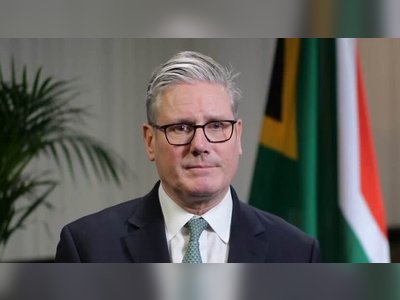
UK Green-lights Domestic SMR Build with Rolls-Royce After US Tensions
Britain backs Rolls-Royce SMR to deliver three small modular reactors at Wylfa amid US objections
The United Kingdom has formally marked the next phase of its nuclear-power strategy by selecting Rolls‑Royce SMR as the preferred technology provider to construct its first fleet of small modular reactors (SMRs), paving the way for a site at Wylfa on the island of Anglesey.
The move follows a two-year, UK-wide competition and draws on a government commitment of approximately £2.5 billion in the coming years to usher in a green-industrial revival.
Under the agreement, Rolls-Royce SMR will partner with the state-owned Great British Energy – Nuclear (GBE-N) to deliver three SMR units, each designed to generate about 470 megawatts.
Combined, they are projected to power the equivalent of around 3 million homes and create up to 3,000 skilled jobs at peak construction.
Formal contract signature and developer-site allocation are anticipated later this year, with grid connection expected in the mid-2030s.
The decision, however, has triggered diplomatic friction with the United States.
Washington publicly expressed its disappointment after a US-based consortium led by Westinghouse Electric Company was not selected for a major reactor project at Wylfa—a site previously earmarked for a large-scale US-led development.
The US ambassador described the British choice as “extremely disappointing,” arguing that the alternative route would have offered a faster, more cost-effective option.
British officials reaffirmed their intention to continue close cooperation with the US on nuclear matters while emphasising the sovereign industrial benefits of the domestic selection.
Supporters of the plan highlight its industrial-strategy credentials: the modular nature of the reactors allows factory fabrication, shorter construction timelines and a stronger British supply chain.
Rolls-Royce’s SMR design is already reported to be ahead in the UK’s Generic Design Assessment (GDA) process, lending confidence to delivery.
The government says this is the first step in a wider program to deploy SMRs across the UK and create an export-led nuclear industry.
Opponents caution the decision carries risk: SMRs remain largely untested at commercial scale and the first units are not expected until the mid-2030s, leaving a gap in the UK’s decarbonisation timeline.
Nonetheless, by choosing a home-grown company and awarding the Wylfa site for SMRs, the UK has set a path towards industrial revival, energy security and long-term low-carbon infrastructure at the heart of its “Plan for Change” agenda.
The move follows a two-year, UK-wide competition and draws on a government commitment of approximately £2.5 billion in the coming years to usher in a green-industrial revival.
Under the agreement, Rolls-Royce SMR will partner with the state-owned Great British Energy – Nuclear (GBE-N) to deliver three SMR units, each designed to generate about 470 megawatts.
Combined, they are projected to power the equivalent of around 3 million homes and create up to 3,000 skilled jobs at peak construction.
Formal contract signature and developer-site allocation are anticipated later this year, with grid connection expected in the mid-2030s.
The decision, however, has triggered diplomatic friction with the United States.
Washington publicly expressed its disappointment after a US-based consortium led by Westinghouse Electric Company was not selected for a major reactor project at Wylfa—a site previously earmarked for a large-scale US-led development.
The US ambassador described the British choice as “extremely disappointing,” arguing that the alternative route would have offered a faster, more cost-effective option.
British officials reaffirmed their intention to continue close cooperation with the US on nuclear matters while emphasising the sovereign industrial benefits of the domestic selection.
Supporters of the plan highlight its industrial-strategy credentials: the modular nature of the reactors allows factory fabrication, shorter construction timelines and a stronger British supply chain.
Rolls-Royce’s SMR design is already reported to be ahead in the UK’s Generic Design Assessment (GDA) process, lending confidence to delivery.
The government says this is the first step in a wider program to deploy SMRs across the UK and create an export-led nuclear industry.
Opponents caution the decision carries risk: SMRs remain largely untested at commercial scale and the first units are not expected until the mid-2030s, leaving a gap in the UK’s decarbonisation timeline.
Nonetheless, by choosing a home-grown company and awarding the Wylfa site for SMRs, the UK has set a path towards industrial revival, energy security and long-term low-carbon infrastructure at the heart of its “Plan for Change” agenda.









